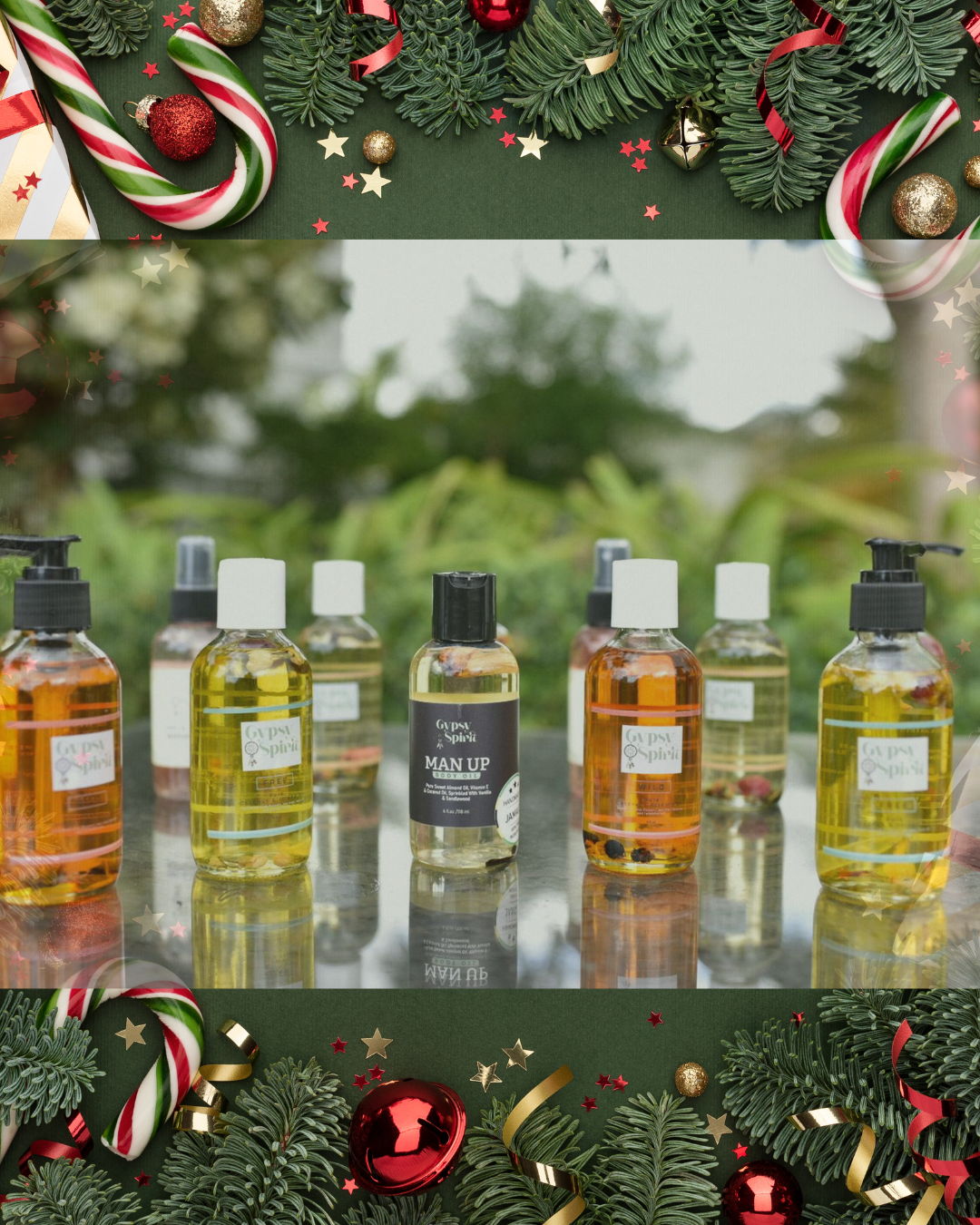Understanding the 5 Basic Skin Types: A Guide to Healthy Skincare

Our skin is a remarkable organ, acting as a barrier between our bodies and the external environment. Understanding its nuances is crucial to properly care for it. While each person's skin is unique, there are five basic skin types that serve as a fundamental guideline for skincare routines. Let's explore each type and learn how to care for them effectively.
-
Normal Skin: Normal skin is often the benchmark for all other skin types. It is well-balanced, neither too oily nor too dry. People with normal skin usually have small pores, good blood circulation, and a smooth texture. While they might experience occasional dryness or oiliness, maintaining this skin type is relatively easy. A simple routine involving gentle cleansing, moisturizing, and sunscreen is typically sufficient.
The best moisturizers to use for normal skin are:
Coconut Oil: Known for its moisturizing properties, coconut oil is light and easily absorbed by the skin. It contains fatty acids that help retain moisture and leave the skin feeling soft.
Almond Oil: Almond oil is rich in vitamins E and A, providing nourishment and hydration to the skin. It's light and absorbs quickly, making it a good choice for normal skin.
Jojoba Oil: Jojoba oil closely resembles the skin's natural sebum. It's a lightweight oil that absorbs well and helps maintain the skin's moisture balance without leaving a greasy residue.
Grapeseed Oil: Grapeseed oil is light and easily absorbed by the skin. It's rich in antioxidants and omega-6 fatty acids, making it beneficial for moisturizing normal skin without feeling heavy.
Argan Oil: Argan oil is rich in vitamin E and essential fatty acids. It's a versatile oil that nourishes and hydrates the skin without leaving a greasy feeling.
2. Oily Skin: Oily skin is characterized by an overproduction of sebum, leading to a shiny complexion, enlarged pores, and a predisposition to acne or blemishes. It's essential to manage this skin type by using non-comedogenic products, which won't clog pores, and gentle cleansers to regulate oil production without stripping the skin of its natural oils. Oil-free moisturizers and regular exfoliation can also help maintain a healthy balance.
The best moisturizers to use for oily skin:
Grapeseed Oil: Grapeseed oil is a lightweight and non-greasy oil that gets easily absorbed. It's rich in linoleic acid, which can help regulate oil production in the skin. It's also high in antioxidants, making it beneficial for overall skin health.
Jojoba Oil: Jojoba oil closely resembles the skin's natural sebum. It's excellent for oily skin as it helps regulate oil production and provides hydration without causing greasiness. It's also non-comedogenic, making it less likely to clog pores.
Rosehip Oil: Despite being an oil, rosehip oil is light and easily absorbed. It's rich in vitamins and antioxidants that can help with skin regeneration, while its astringent properties may assist in balancing oily skin without clogging pores.
Argan Oil: Argan oil is a versatile oil that is lightweight and absorbs quickly. It's rich in vitamin E and can help balance sebum production while providing hydration to the skin.
3. Dry Skin: Dry skin lacks moisture and often feels tight or itchy. It may be caused by genetics, environmental factors, or inadequate hydration. Skincare for dry skin involves using gentle, hydrating cleansers, rich moisturizers with ingredients like hyaluronic acid or glycerin, and regular exfoliation to remove dead skin cells. Additionally, using lukewarm water while cleansing and applying moisturizer immediately after bathing helps retain moisture.
The beset moisturizers for dry skin:
Coconut Oil: Known for its emollient properties, coconut oil deeply moisturizes and forms a protective barrier over the skin to prevent moisture loss. It's rich in fatty acids and has antimicrobial properties, making it beneficial for dry skin.
Jojoba Oil: Jojoba oil closely mimics the skin's natural oils. It's easily absorbed, helps restore the skin's natural lipid barrier, and provides long-lasting hydration without feeling heavy.
Avocado Oil: Rich in oleic acid and vitamin E, avocado oil deeply penetrates the skin, offering intense moisture and soothing properties for dry, flaky skin.
Sweet Almond Oil: With high levels of vitamin E, vitamin A, and fatty acids, sweet almond oil helps soothe and deeply moisturize dry skin. It absorbs easily and is gentle on the skin.
Olive Oil: Olive oil contains squalene and oleic acid, which help to deeply moisturize and repair the skin's natural barrier. It's beneficial for dry skin, especially when used in moderation.
4.Combination Skin: Combination skin is a mix of both oily and dry skin. Typically, the T-zone (forehead, nose, and chin) tends to be oily, while the cheeks are dry. Balancing this skin type involves using different products for different areas of the face. For instance, oil-controlling products in the T-zone and hydrating products for the drier areas. Regular exfoliation and moisturizing are key in managing this combination.
The best moisturizers for combination skin:
Grapeseed Oil: Lightweight and non-greasy, grapeseed oil is rich in antioxidants and omega-6 fatty acids. It absorbs quickly, making it suitable for providing moisture to dry areas without clogging pores or adding excess oil to the T-zone.
Jojoba Oil: Known for its similarity to the skin's natural sebum, jojoba oil can help regulate oil production in the T-zone while providing moisture to dry areas. It's lightweight, non-comedogenic, and absorbs well.
Rosehip Oil: Despite being an oil, rosehip oil is relatively lightweight and absorbs easily. It's rich in essential fatty acids and vitamins, making it suitable for nourishing dry patches without causing excessive oiliness in other areas.
Argan Oil: Rich in vitamin E and essential fatty acids, argan oil helps balance the skin by providing hydration without feeling heavy. It can be used on drier areas while still being suitable for oilier parts of the skin.
5.Sensitive Skin: Sensitive skin is prone to irritation and can react to various triggers, including certain ingredients in skincare products, environmental factors, or even stress. Individuals with sensitive skin need to opt for fragrance-free, hypoallergenic, and gentle skincare products. Patch tests before trying new products and incorporating minimal, soothing ingredients like aloe vera or chamomile can help avoid adverse reactions.
Jojoba Oil: Jojoba oil closely resembles the skin's natural sebum, making it an excellent option for sensitive skin. It's gentle, non-comedogenic, and helps maintain the skin's natural balance without causing irritation.
Sweet Almond Oil: Rich in vitamins E and A, sweet almond oil is gentle and soothing for sensitive skin. It's moisturizing and absorbs easily without causing irritation.
Avocado Oil: Avocado oil is rich in fatty acids and vitamin E, making it beneficial for sensitive skin. It provides deep hydration and helps soothe irritation.
Coconut Oil (in moderation): While some sensitive skin types might be reactive to coconut oil, others find it beneficial. It's essential to use it in moderation and perform a patch test to ensure it suits your skin without causing irritation.




